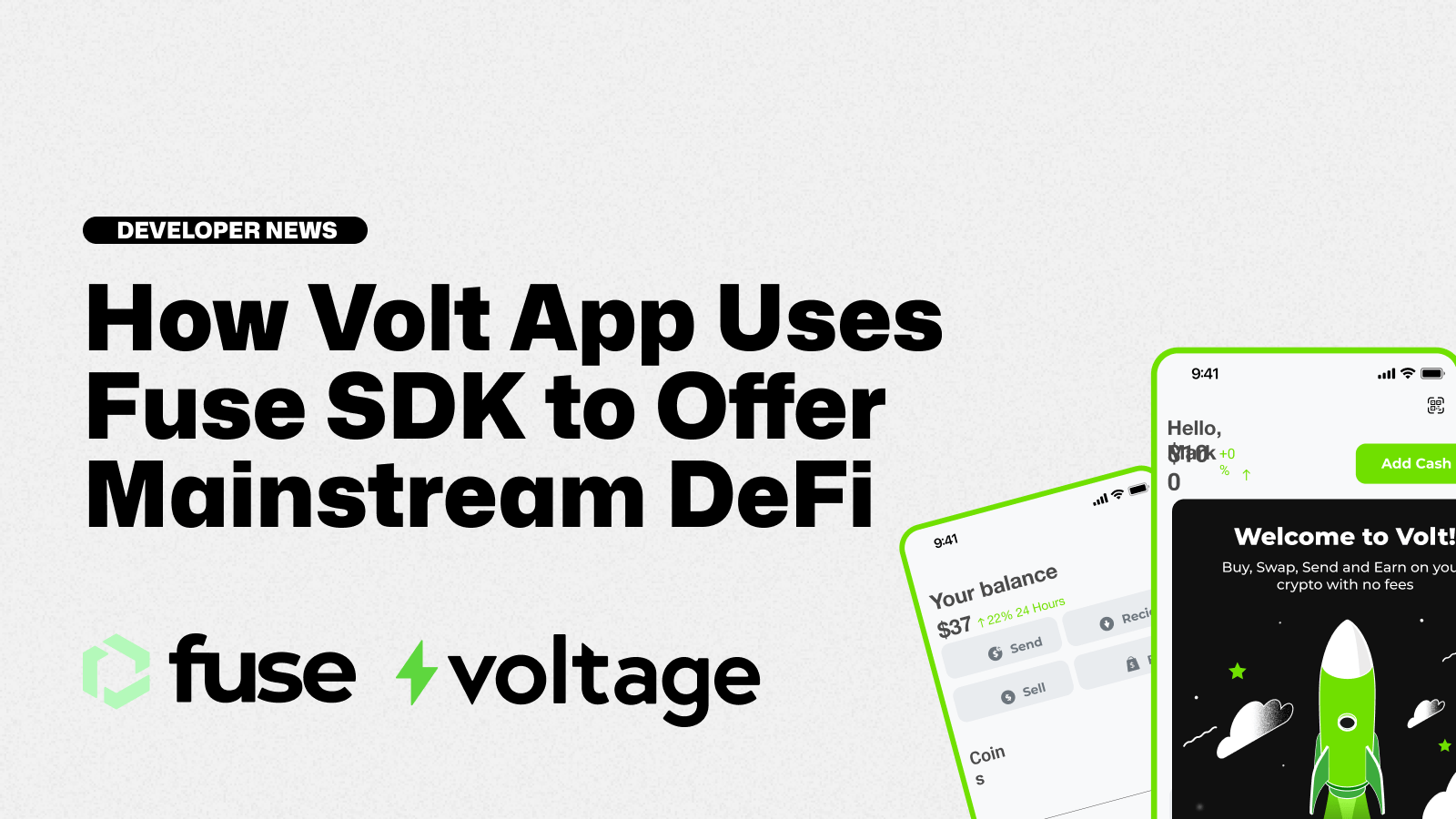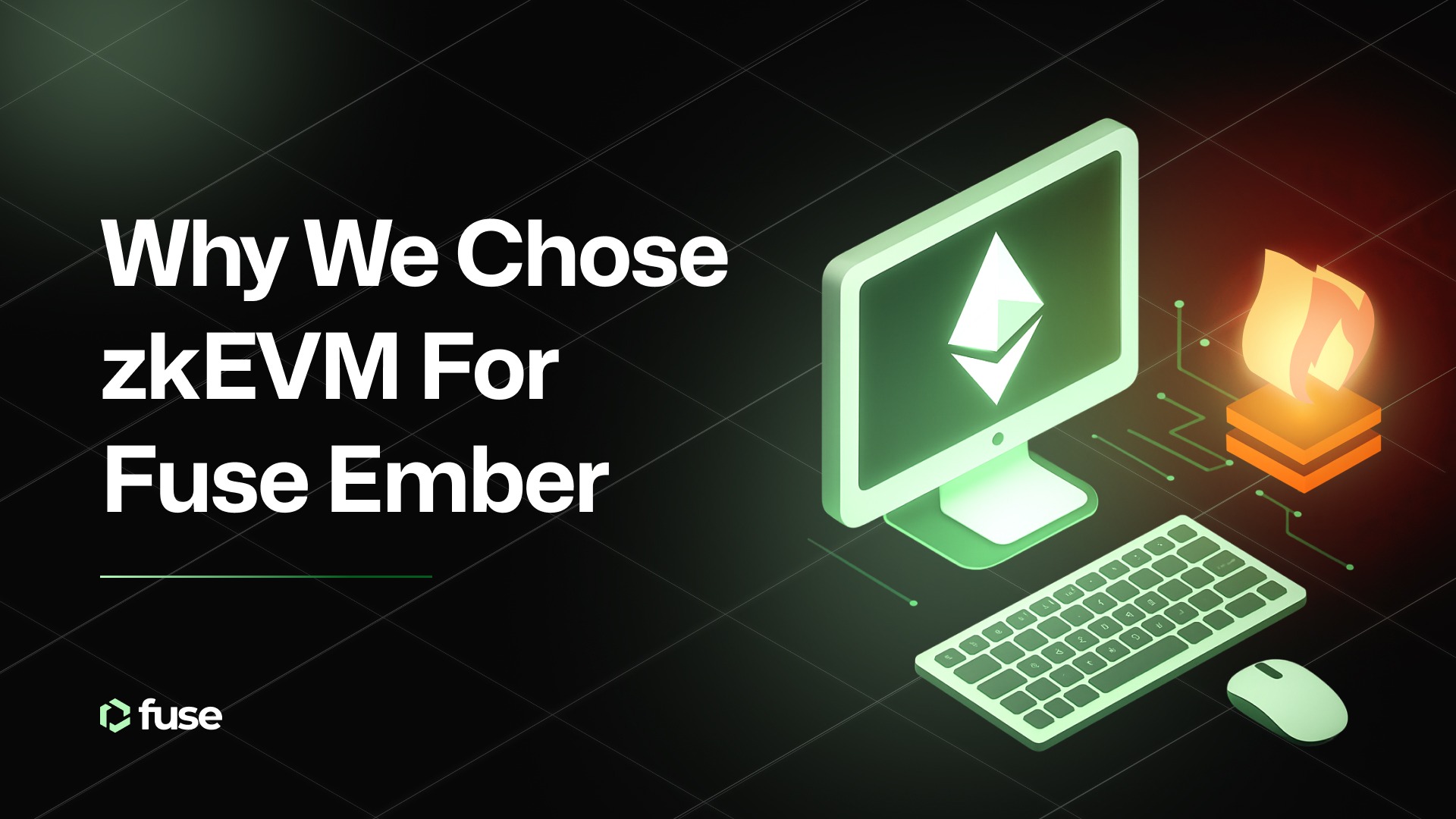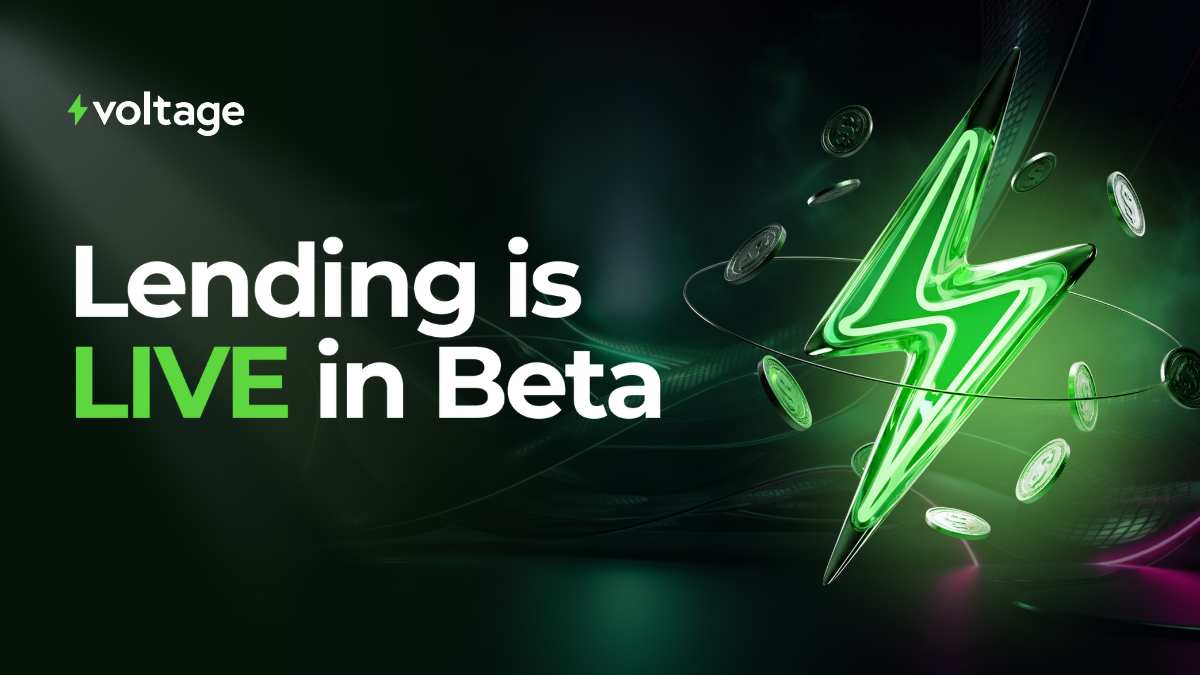Voltage Finance and its Volt mobile app is a decentralized finance (DeFi) protocol that heavily utilizes the Fuse Wallet SDK. Volt aims to provide a secure, transparent, and user-friendly mobile DeFi app for users to trade and earn passive income through yield farming and liquidity provision.
In many ways, Voltage is similar to leading Ethereum DEX Uniswap. It has many of the same features, but while Uniswap is arguably built for more advanced users, the Volt app focuses on mainstream users with its easy-to-use mobile application ready for incoming waves of people experimenting with DeFi that want to avoid technological hurdles.
Using the Fuse Wallet SDK, the Voltage team could build easy-to-use services that dont require users to learn new behaviors. More importantly, because Fuse was early to create account abstraction using a custom application of the Argent smart wallet, users dont need to worry about private keys or secret passphrases. In this way, Voltage builds for the mainstream from day one.
Introducing the VOLT app⚡️????
— Voltage Finance (@voltfinance) January 23, 2023
Experience what #DeFi offers at pocket reach with just a few clicks.
Get whitelisted and be one of the first to use the VOLT App and earn rewards.
Onboarding users as we speak, sign up fast!????https://t.co/weZJkClUXU#VOLT #App #crypto #DeFi pic.twitter.com/8jqNgujXD5
How Volt App uses Fuse SDK
The Fuse Wallet SDK makes it easy for developers to create, manage, and engage with Fuse Smart Wallets in their Flutter and TypeScript applications. The SDK provides pre-built functions and utilities, allowing developers to interact with Fuse Smart Wallets securely and efficiently.
Some of the key features used by Volt include:
- Create a Fuse Smart Wallet: Create a new Fuse Smart Wallet associated with a user’s EOA.
- Retrieve an existing Fuse Smart Wallet: Retrieve an existing Fuse Smart Wallet associated with a user’s EOA if it exists.
- Send transactions: Send transactions, including ERC20 and NFT transfers and interaction with arbitrary smart contracts, through the Fuse relayer that will cover the gas fees. This allows users to interact with the blockchain without worrying about gas fees.
- Retrieve transactions history: Retrieve a user’s transaction history for their Fuse Smart Wallet. This makes it easy to keep track of their activity on the blockchain.
- Retrieve ERC20 and ERC721 token balances: Retrieve a user’s ERC20 and ERC721 token balances for their Fuse Smart Wallet. This makes it easy to monitor their holdings on the blockchain.
- Staking: Let Smart Wallet owners stake their native FUSE tokens directly in the app and earn rewards.
- Trading: Let Smart Wallet owners swap various assets and get price data for several assets on the Fuse network.
Using Fuse’s Smart Wallet and SDK, Voltage leans into several vital benefits that make the application a contender for mainstream users. More importantly, all operations occur on the EVM-compatible, fast, low-cost Fuse Network blockchain.
The SDK provides Volt users with improved security as Fuse Smart Wallets are non-custodial accounts that allow users to deposit funds that no one else can control and withdraw at any time. Each Fuse Smart Wallet is a smart contract associated with the user’s EOA, controlled only by that user.
Gassless transactions
The real kicker is that Fuse Smart Wallets support gasless transactions, improving the user experience and making it more seamless to interact with the blockchain. In essence, users should feel they are using a typical banking application and not be confronted with technical jargon or need to leave the app.
The Fuse Wallet SDK is currently available for Flutter/Dart, with a Typescript SDK planned for release shortly. Developers and merchants can quickly integrate Web3 and crypto payments into their existing apps with the Fuse SDK and benefit from faster, more secure transactions with lower fees and a global reach.
Fuse Stack Architechture
The vertically integrated Fuse tech stack is comprised of several essential components that make it easy for merchants and developers to integrate Web3 wallets and payments into existing applications, including:
- Fuse SDK enables interaction with Fuse APIs, indexing solutions, RPCs, and relayers.
- Fuse APIs, which include:
- Smart Wallets API for creating and managing Smart Contract Wallets.
- Relaying API for facilitating gasless transactions.
- Admin API for automating tasks like rewards and airdropping.
- Notifications API for subscribing to updates about wallet activity.
- Trade API for fetching trade data and assisting with swaps.
- Payment Link API for creating payment links.
- DATA APIs enable additional indexed data such as balances, transaction histories, etc.
- Indexers, including subgraphs and the explorer.
- Fuse Network serves as the underlying infrastructure for the Fuse Stack.
- Smart Wallet Contracts and their modules.
- Token contracts, including ERC20 tokens and ERC721 (NFTs).
- Token factories for creating new tokens.
- Other smart contracts include AMMs of DEXes, DAO contracts, and more.
Volt App Launch
With more than 90% of global residents owning and accessing goods and services on a mobile device, the new Volt DeFi app positions ideally to engage those most curious about the benefits of decentralized finance.
Planned for release in early April 2023, the waitlist already has more than 23,000 people eager to access the new Volt mobile app, which is available for iOS and Android devices.
The DeFi app offers non-custodial control of cryptocurrency, gasless transactions, and easy payment transfers to phone contacts. Users can also buy and sell cryptocurrency in local currency and secure funds through various backup options and biometric fingerprint mapping.
Additional services include liquid staking and Volt’s ‘Zap’ one-click liquidity feature.
Fuse is excited to see the evolution of its leading decentralized exchange and Volt mobile application.
.svg)
.svg)














